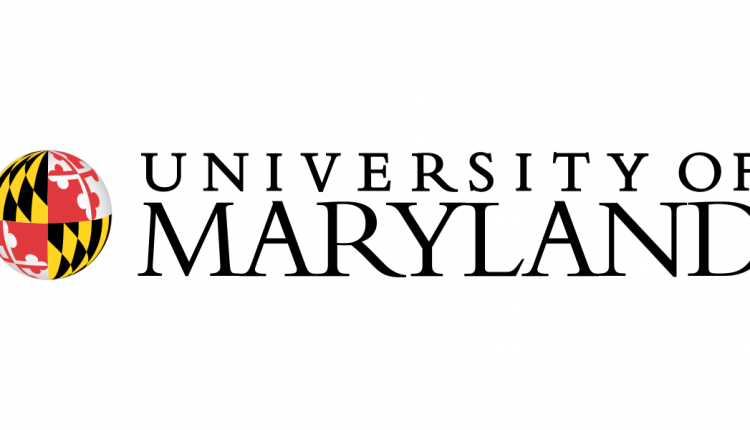University of Maryland: Ukrainian Terps Hope for Peaceful Resolution
As Russia’s all-out invasion of Ukraine continued through the weekend with missiles falling around the country and Russian troops clashing with the Ukrainian military and civilian defenders in and around the capital, Kyiv, and in other major cities, Terps with family connections there juggled text messages and Skype calls and waited nervously for updates from loved ones.
Late Sunday, Ukraine’s Interior Ministry reported 352 civilians had been killed in the fighting, while military casualty counts were unavailable. A massive humanitarian disaster was also in progress, with 368,000 people fleeing the country as of Sunday, the United Nations reported; others were digging in to fight the biggest attack on a European country since World War II.
That earlier war, which left tens of millions of people in the region dead, was on the minds of Ukrainian and Ukrainian-American Terps across campus and beyond.
Boris Lushniak, M.D., dean of the School of Public Health
“My parents came from western Ukraine under oddly similar circumstances to what’s happening today. It was in World War II, and they witnessed battles with both the Soviets and the Nazis. My parents spent four years as refugees in Germany, living in camps from ’45 to ’49. Then they got that golden ticket to come to the United States, and I was the third of three kids born here.
“I’ve been in contact with my relatives since the tension began rising; at first there was a sense we’ll find a way out of this, we won’t see a war. A few days ago, I heard from my second cousin in Kyiv that missile strikes had started nearby, but they were all OK. And then I lost communications for about 48 hours. I heard back from him this morning: His wife and kids have left for the West, and he’s getting ready to defend Kyiv, which we see on the news this morning has Russians all around the outskirts. My other cousin in Lviv could have gone to Poland, but the family made the decision to stay in their family’s country. She went back to her home village but her husband and son, a freshman in college at the Ukrainian Catholic University, are ready to fight and defend Ukraine.
“As a public health researcher, I think about how the medical system will be overloaded by the wounded and the bodies of people killed. You’re seeing mass movement of people; there’s a whole field of public health dedicated to refugees, and to questions like where they’ll stay, who will feed them, where they get water and sanitation. As the situation worsens, people who stayed in Ukraine may struggle with these same needs. So it’s shaping up not just as a geopolitical disaster, but as a human disaster and public health disaster.”
Pavlo Dziuba, sophomore men’s basketball forward, and Alex Len, former UMD and current Sacramento Kings center
UMD men’s basketball player and Kyiv, Ukraine native Pavlo Dziuba expressed support for his home country during Maryland’s game vs. Indiana on Thursday night, mere hours after Russia had invaded.
The forward, a transfer from Arizona State, wrote “PRAY FOR UKRAINE” on one of his sneakers and “NO WAR, PEACE” on the other with a heart.
“Pavlo is our brother,” Interim Head Coach Danny Manning said in the Baltimore Sun. “We love him and we care for him. We’re gonna support him. His family is in a tough situation like so many other people over in the Ukraine. All we can do is send our love, prayers and thoughts to his family and all the other people that are over there.”
Fellow Terp and Ukraine native Alex Len of the Sacramento Kings also showed his solidarity on Thursday. The center, who played for UMD from 2011-13, linked arms with the Kings and the Denver Nuggets during a moment of silence before their game. Len also released a joint statement via Twitter with Toronto Raptors forward Svi Mykhailiuk, another Ukrainian player in the league:
“A great tragedy befell our dear homeland Ukraine. We categorically condemn the war,” they wrote. “Ukraine is a peaceful, sovereign state inhabited by people who want to decide their own destiny. We pray for our families, relatives and all the people who are in the territory of Ukraine. We hope for an end to this terrible war as soon as possible. Dear fellow Ukrainians, hold on! Our strength is in unity! We are with you!”
Sergii Skakun, assistant professor of geographical sciences with a joint appointment in the College of Information Studies
“I have a grandmother who just turned 90, and she just got COVID. She’s staying with my aunt in western Ukraine, and in the middle of the night they were awakened by the air raid sirens. Maybe you could say it’s better where they are than in Kyiv, but they’ve been attacked by missiles from Belarus.
“My grandmother was born in 1932. She lived through the huge famine caused by Stalin, and she lived through World War II, and she says that never in her life could she imagine that she would see World War II in the 21st century.
“There is a feeling among some people in Western Europe or the U.S. it is not their problem. I was shocked by the quotes I saw from the former U.S. president. Putin has talked about (his intentions toward) NATO countries like Poland and the Baltics, where there are U.S. troops. Then it becomes a U.S. problem. My advice is to take a good historical book about the origin of World War II and translate it to the present. It will be a one-to-one translation.
“What people can do is send donations; contact your US Congress representatives and senators and ask for stronger sanctions; spread the word. We have to accumulate this critical mass and resist Putin, and stop the insanity we’re facing again in the 21st century.”

